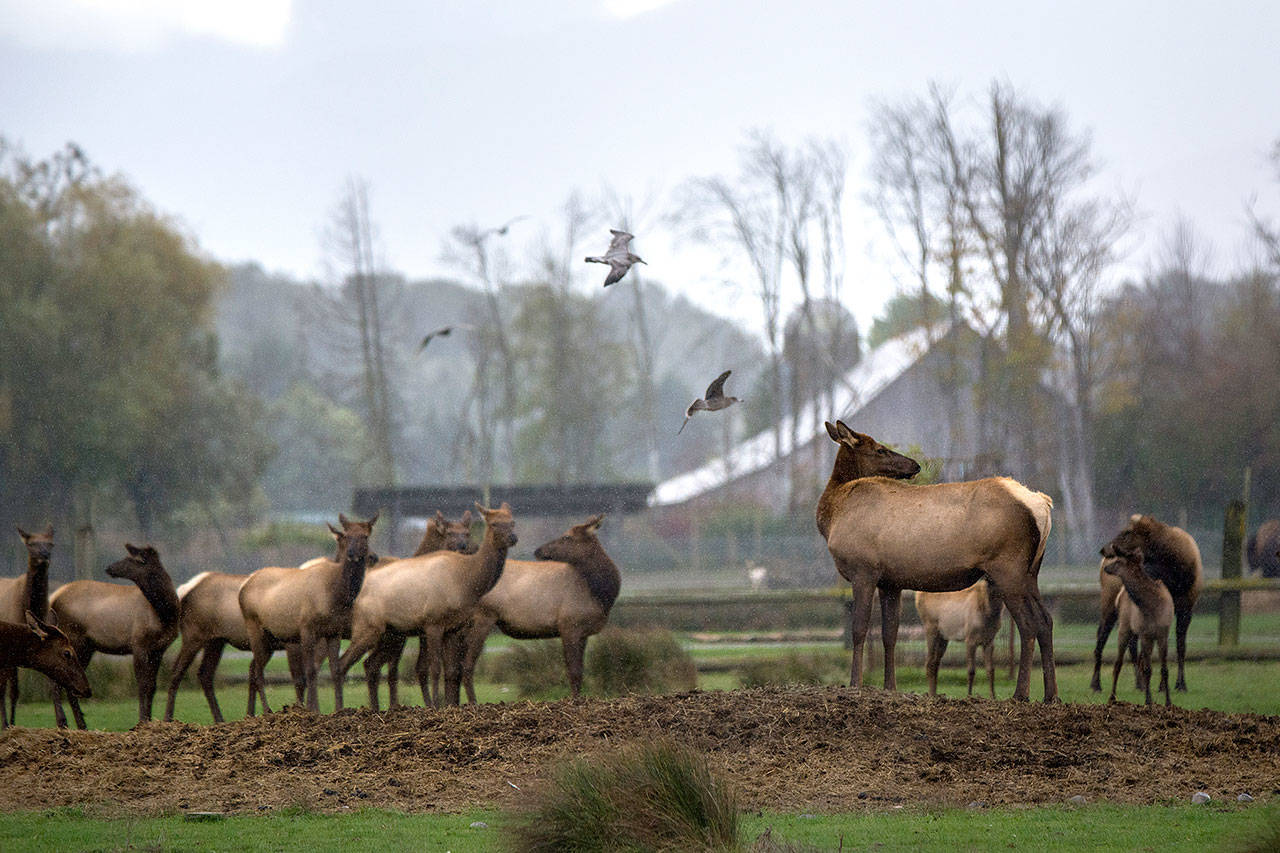SEQUIM — The Olympic Game Farm, responding to a federal lawsuit filed late last year by the Animal Legal Defense Fund, denies allegations of mistreatment of the approximately 300 animals at the roadside zoo.
The response, filed Wednesday in U.S. District Court in Tacoma, addresses the practice of allowing visitors to feed bread to animals, allegations that the Olympic Game Farm failed to give necessary medication to suffering animals and allegations that facilities are inadequate for the animals that live there.
The lawsuit, filed in December, alleges the Olympic Game Farm, a popular drive-through wildlife exhibit at 1423 Ward Road, does not properly care for its animals and is in violation of the Endangered Species Act.
It asks the court to order the facility to give up its endangered or threatened species and appoint a special master or guardian ad litem to identify “reputable wildlife sanctuaries” and determine the most appropriate placement for forfeited animals.
Also named as defendents are game farm shareholders Robert Beebe, James Beebe and Kenneth Beebe.
The game farm said that of its approximately 300 animals, only a few are threatened or endangered species and denies that bread is fed to any threatened or endangered species, with the possible exception of one brown bear.
The Animal Legal Defense Fund (ALDF) misidentified the subspecies of 14 of the 15 brown bears at the game farm, it said in the response.
The subspecies of the one remaining bear hasn’t been verified, according to the Olympic Game Farm.
ALDF claims the grizzly bears at the Olympic Game Farm are kept in “small, barren enclosures, where they pace or linger by a fence and await passing vehicles to throw bread at them,” an allegation the game farm denies.
The game farm provides bread that visitors can feed to animals.
The Olympic Game Farm denies that “bread is an improper food source for bears,” and denies “any suggestion that this bread is the sole food source fed to the bears or that the bears have an insufficient diet.”
In its response, the game farm rejects ALDF’s assertion that it is “abnormal” for grizzly bears to wave at visitors — something the game farm is known for.
“Bears are intelligent and this is a behavior that bears have taught themselves at Olympic Game Farm,” the response said.
The lawsuit refers to a United States Department of Agriculture inspection in 2017 in which it was said that the Olympic Game Farm had failed to give several necessary medications to animals suffering in pain, including medications to treat arthritis in an older brown bear and leg injuries suffered by a Canada lynx.
In its response, the Olympic Game Farm says “the prescribing veterinarian instructed discontinued use,” and that it denies “that any animal was suffering or denied proper medical care.”
In that inspection the USDA noted that prescriptions for a coyote named Koda and a lynx named Persia called for use until there was no medicine left, but there were still capsules in the bottle.
A 24-year-old brown bear named Marsha had been prescribed Meloxicam in late 2015 for treatment of arthritis, but none of the medication had been used, said the USDA.
While the ALDF said the USDA has found “multiple violations” at the Olympic Game Farm over the past five years, the Olympic Game Farm says the incidents noted in the reports are not “violations.”
The ALDF said that Amadeus, a tiger, died at the Olympic Game Farm in late 2017 or early 2018.
“As Amadeus lay sick and dying, OGF continued to display him to the public, hanging a sign on his enclosure reading ‘animal is under veterinarian care,’ ” ALDF wrote in its lawsuit.
The Olympic Game Farm says Amadeus “remained in its home, under veterinarian care for renal failure.”
The Olympic Game Farm is asking the court to reject ALDF’s claims and to award reasonable attorneys’ fees and costs.
________
Reporter Jesse Major can be reached at 360-452-2345, ext. 56250, or at jmajor@peninsuladailynews.com.

